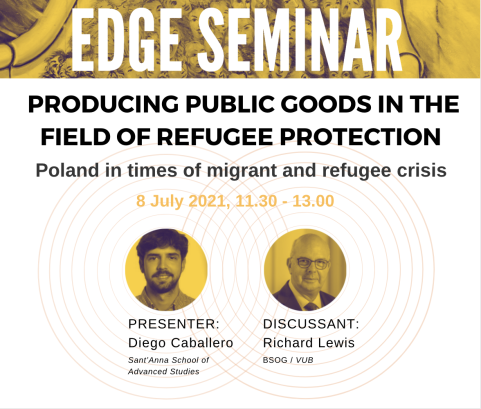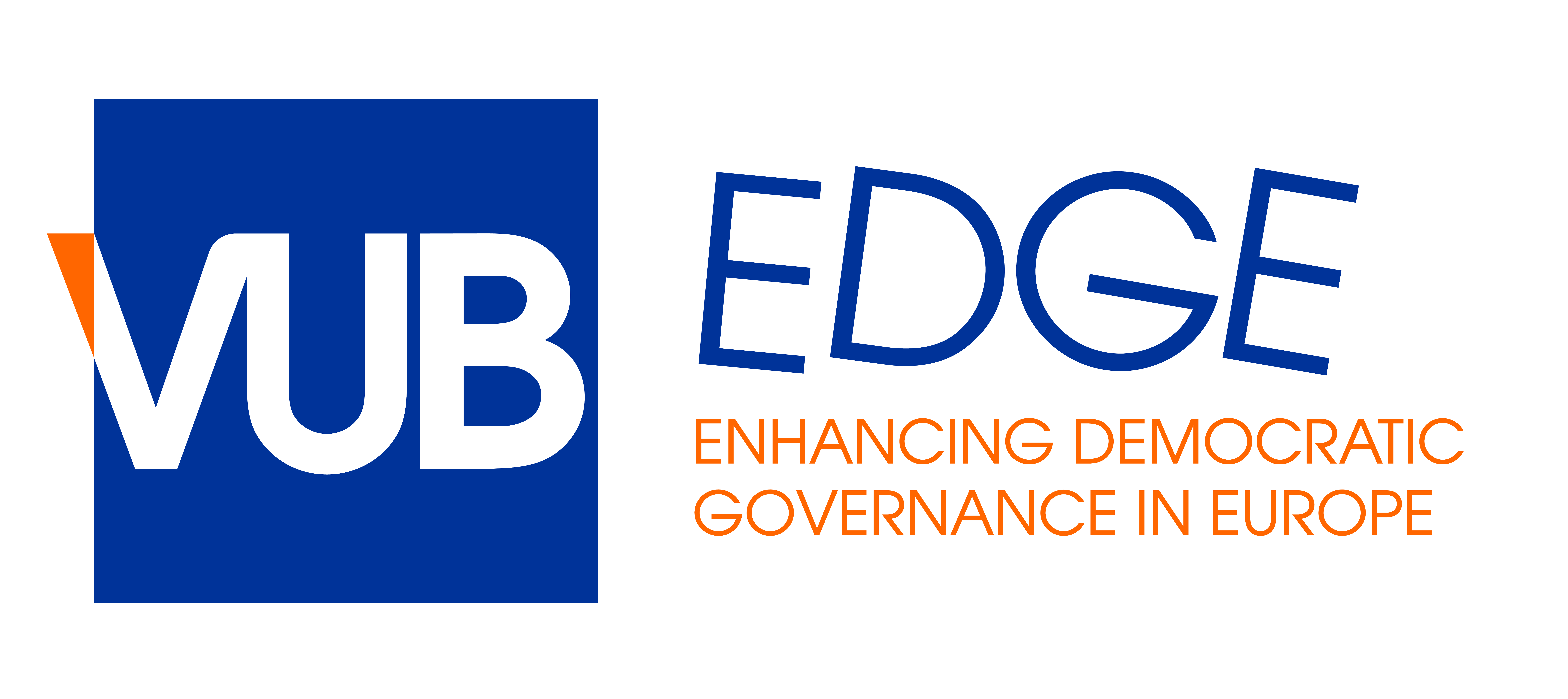EDGE ONLINE SEMINAR, 8 JULY 2021 (11.30 - 13.00)
Diego Caballero Vélez (Sant’Anna School of Advanced Studies) presents the findings of his doctoral research addressing refugee protection dynamics in Poland through the lens of public goods theory.

ABSTRACT
In the past decade, a huge development in public goods literature has taken place. Public goods theory has its roots in economics and has tried to understand collective action failure in the market context. When it comes to analyzing actors’ preferences in the provision of public goods, scholars have used a rational choice approach in which actors are moved by a utilitarian-maximizing premise, that is to say, rational choice assumes that actors’ choices are a preferences’ sum without taking into consideration to what extent different preferences may lead to different choices. In this regard, recently, scholars of international relations have tried to understand public goods’ provision under a constructivist approach, assuming that actors’ choices are led by constructed preferences. Accordingly, public goods’ costs and benefits are socially constructed. On this subject, refugee protection dynamics has been investigated through the lens of public goods theory in which refugee protection may be considered as a public good with non-rival and non-excludable benefits.
In 2015, the EU launched the 2015 Refugee Emergency Relocation System by which asylum-seekers arriving in Italy and Greece had to be relocated among Member States. Nevertheless, this proposal found strong opposition from the Visegrad Group countries, which expressed their reluctance to the relocation scheme. In this context, Poland was reluctant to relocate any refugee from Syria, as the Polish government (Law and Justice political party) perceived them as a security threat; on the other hand, the Polish ruling political party has always been willing to relocate Eastern European refugees (most of them Ukrainians) as well as opening its doors to those migrants from Eastern European countries considered as labour migrants. This research seeks to explain to what extent the Polish government considers Middle East migrants a security threat (cost) and Eastern European migrants a labour resource (benefit) and asylum-seekers who need international protection; and how it influences the provision of both private good (labour migration) and public good (refugee protection). Through a frame analysis of political discourses, party manifesto, parliamentary debates and interviews with experts, this research proposes a new methodological model. This model, based on a public goods’ constructivist approach, analyzes how identity may shape Poland s preferences in the provision of goods in different types of migration governance.
*This event is free of charge and will take place online via Zoom (the link will be shared with all the registered people the day before).
